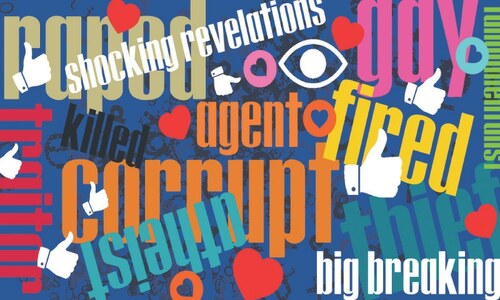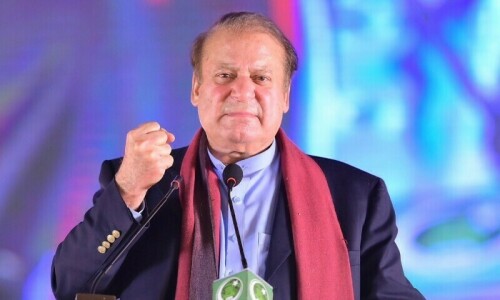When Juan Orlando Hernández was convicted by a federal jury in Manhattan in early March 2024, it marked a spectacular fall from grace: from being courted in the US as a friendly head of state, to facing the rest of his life behind bars, convicted of cocaine importation and weapons offences.
“Juan Orlando Hernández abused his position as president of Honduras to operate the country as a narco-state, where violent drug traffickers were allowed with virtual impunity,” said US Attorney General Merrick Garland following the jury conviction.
Anne Milgram, administrator of the Drug Enforcement Administration (DEA), added: “When the leader of Honduras and the leader of the Sinaloa Cartel work hand-in-hand to send deadly drugs into the United States, both deserve to be accountable.”
The conviction was a victory for the Justice Department and the DEA. During Hernández’s two terms in office, from 2014 to 2022, he and his acolytes transported more than 400 tonnes of cocaine into the United States, according to US prosecutors. The former head of state now faces a mandatory sentence of up to 40 years in prison; sentencing is scheduled for June 26.
The amazing story of the man who created the first narco-state of the 21st century, and how the United States helped him every step of the way — until now
But there’s more to this story.
As I explore in the book 21st Century Democracy Promotion in the Americas: Standing Up for the Polity, written in collaboration with the Open University’s Britta Weiffen, Honduras is a tragic example of what happens when a country becomes a narco-state.
While its people suffer the consequences — the World Bank reports that about half the country currently lives under poverty — its leaders grow rich through the drugs trade.
Furthermore, the way Hernández came to power and maintained that position for so long could provide “Exhibit A” in any indictment of US policy toward Central America — and Latin America more generally — over the past few decades.
GROWING TIES WITH CARTELS
Up to Hernández’s arrest in Tegucigalpa, the Honduran capital, and extradition to the United States in January 2022, his biggest enabler had been none other than the US government itself.
Presidents Barack Obama, Donald Trump and Joe Biden all backed Hernández and allowed him to inflict enormous harm to Honduras and to the US in the process.
How so? To answer this question, some background is needed.
On June 28, 2009, a classic military coup took place in Honduras. In the wee hours of the morning, while still in his pyjamas, President Manuel “Mel” Zelaya was unceremoniously escorted by armed soldiers from his home and flown to a neighbouring country.
The coup leaders alleged that, by calling for a referendum on reforming the Honduran constitution, the government was moving toward removing the one-term presidential term limit enshrined in the country’s charter and opening the door to authoritarianism.
Initially, then-President Barack Obama protested the coup and took measures against those responsible — the right-wing opponents of Zelaya. But the administration eventually relented and allowed the coup leaders to prevail, largely due to pressure from Republicans, who saw Zelaya as being too close to Venezuela’s Hugo Chavez, whose leftist agenda was deemed by the GOP [Republican Party] as a threat to US interests.
The coup-makers simply ran the clock against the upcoming election date and installed their own candidate in the presidency, Porfirio Lobo of the National Party, whose son Fabio was also later convicted of cocaine trafficking.
WASHINGTON LOOKS THE OTHER WAY
Lobo laid the foundations of Honduras as the new century’s first narco-state, allowing drug cartels to infiltrate the highest echelons of government and the security apparatus, as the cocaine trade became an increasingly central plank of the country’s economy.
All the while, the US pumped tens of millions of dollars into building up Honduras’ police and military, despite widespread allegations of their being engaged in corruption, complicit in the drugs trade and engaged in human rights abuses.
The dollars continued to flow when Lobo was succeeded in 2013 by his buddy and fellow National Party member, Juan Orlando Hernández.
In 2017, Hernández — an ardent supporter of the 2009 coup — ran for a second term after the Supreme Court of Honduras pronounced this to be perfectly legal.
Many Hondurans believe Hernández stole the November 2017 elections. The vote count was suspended in the middle of the night as Hernández was running behind and, when the polls opened in the morning, he miraculously emerged as a winner.
Despite widespread allegations of election fraud, the US quickly recognised the result, congratulating Hernández on his win. Emboldened by his success, Hernández continued to build up Honduras as the new century’s first narco-state of the Americas.
In 2018, the president’s brother, Juan Antonio “Tony” Hernández, a former member of the Honduran parliament, was arrested in the US for his association with the Cartel de Sinaloa, the Mexican drug cartel.
This entity valued his services so much that they named a particular strain of cocaine after him, stamping the bags as “TH”. Tony Hernández was convicted on four charges in 2019, sentenced to 30 years in prison, and has been in a US federal prison ever since.
President Hernández denied any association with the cartel, but the evidence pointed to the contrary. As reported in The Economist, in a New York City trial, one accused drug trafficker alleged that Hernández took bribes for “helping cocaine reach the United States.”
Another witness testified that the president had taken two bribes in 2013, before being elected; a former cartel leader testified that the president had been paid $250,000 to protect him from being arrested.
‘COMPLICIT OR GULLIBLE’
Given Hernández’s history in Honduras, the repeated claims of US government officials, that they simply didn’t know of his crimes, ring hollow.
Honduras became a narco-state in part because US policymakers looked the other way as it did so. They embraced Hernández because he was ideologically more palatable and subservient to Washington’s wishes, compared to his rival, Zelaya. But as the trial verdict in Manhattan makes clear, it was a decision with disastrous consequences.
As one State Department official put it, “Today’s verdict makes all of us who collaborated with [Hernández] look either complicit or gullible.”
The latter may be the more charitable assessment. But the truth is more uncomfortable.
The writer is Interim Director of the Frederick S. Pardee Center for the Study of the Longer-Range Future at Boston University in the USA.
Republished from The Conversation
Published in Dawn, EOS, April 14th, 2024















































Dear visitor, the comments section is undergoing an overhaul and will return soon.